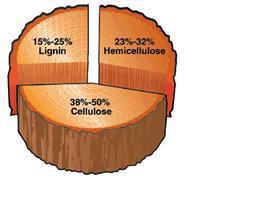






2. Pellets 8mm
3. 6-8 mm DIN+ Quality Pellets
4. We manufacture and sell fuel pellets from straw to European countries
5. Sell wood pellets
6. Wood pellet manufacturing
7. Sunflower Husk Pellets
8. Din Plus Wood Pellets
9. Export of sunflower husk pellets to the European market
10. Export of sunflower husk pellets to the European market
Benzenes production from biomass: new research
Thu-01-1970
A catalyst that can selectively cleave the carbon-oxygen single bonds in lignin could lead to a new way to produce aromatic chemicals such as benzene. Asian Scientist Newsroom. In a paper published in Nature Communications, researchers describe a new catalyst that can selectively cleave carbon-oxygen single bonds in lignin, a major component of biomass. This catalysis facilitates the mass use of lignin as feedstock to obtain basic aromatic chemicals. The chemical industry currently depends on fossil resources such as oil for raw materials.
However, given that fossil resources are finite in quantity, alternative sources of raw materials for chemical products are required. Plant matter, and in particular inedible plant matter, is the leading candidate for such a renewable source and is the focus of much research. Such resources are collectively referred to as biomass, but a variety of problems need to be resolved before biomass can replace fossil resources as raw material for the chemical industry. Lignin is polymer contained in large quantities in woody biomass, but was known to be difficult to convert into useful raw materials for the chemical industry because of its complex chemical structure.
In the present study, Professor Kyoko Nozaki and Assistant Professor Shuhei Kusumoto from the University of Tokyo developed a new iridium catalyst and succeeded in using hydrogen to both deoxygenate phenols and remove methyl groups from aromatic ethers. With conventional catalysts, the problem was that lignin aromatic rings would react with hydrogen first. This does not occur with the new catalyst and it is possible to selectively cut only the carbon-oxygen single bond. The key characteristic of the newly developed iridium catalyst is that the ligand (hydroxycyclopentadienyl) and the metal (iridium) work cooperatively. This research paves the way for biomass to replace fossil fuels as the raw materials for chemicals such as benzene, toluene, and xylene (BTX) and phenols.
Source: http://ukrfuel.com/news-benzenes-production-from-biomass-new-re-33.html
Any copying and distributing withoutactive hyperlink is strictly prohibited!
Views: 1186
Stobart biomass division is to make a deal

Biomass Related News
- Current biomass energy sources in Slovenia
- In 2012 the number of straw pellet sellers in Ukraine increased by 45%
- Zaporizhzhya region goes on implementing renewable energy sources
- The largest rooftop solar power plant in the world
- Greenleaf Power LLC is taking over Plainfield Renewable Energy
- How to make wood charcoal
- Space mission to measure biomass will give projections of climate change
- Drax Power Station in Britain becomes visitor attraction
- Charcoal kiln construction and features
- Briquettes used in district heating in Floby, Sweden
|
© Ukrainian Biofuel Suppliers 2008-2024 |